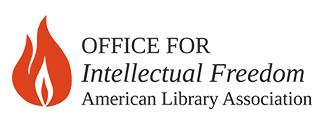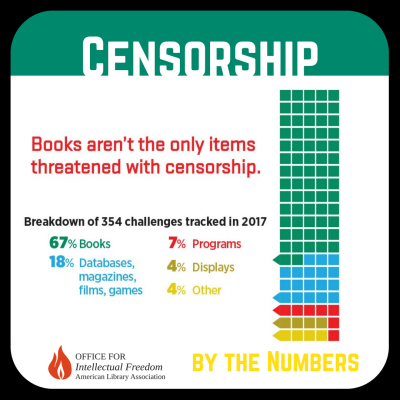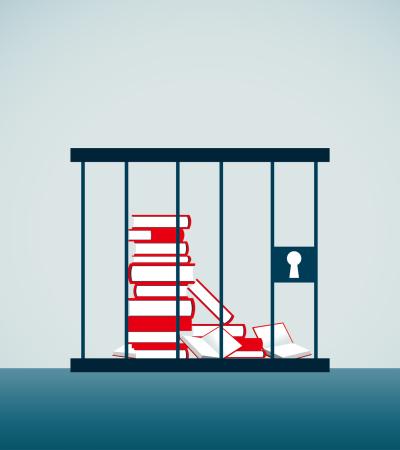Last year, the Arlington Heights (Ill.) Memorial Library was forced to cancel a program for safety reasons after receiving threatening phone calls. The program, titled Know Your Rights, was supposed to inform undocumented residents about their rights. People went beyond expressing their objections to the library program and threatened the safety of attendees, thereby denying access to information and resources.

Reports of challenges to programs are increasing, and there are several ways to support colleagues and community members.
The ALA Office for Intellectual Freedom (OIF) tracks censorship incidents and challenges to library materials and services — which includes programs. When programs are challenged, there usually isn’t a form to fill out, and occasionally there isn’t a policy to fall back on, but it can still be considered censorship.
OIF is seeking information on 2018 challenges by Dec. 31. The office offers support when programs are challenged, such as writing letters, attending meetings and reviewing program policies. Reporting censorship also equips the office with information to assist library workers; craft resources; and publish censorship data in the State of America’s Libraries report.

Of the 354 challenges OIF tracked in 2017, 7 percent were challenges to programs. OIF has found that more than 80 percent of challenges go unreported, but the office is hoping to change that.
“It takes courage to speak out against censorship. We need to bring these situations to light so we can learn from them,” said OIF Assistant Director Kristin Pekoll.
The office noticed an increase in reported challenges to Drag Queen Story Times and has compiled some resources to assist library workers.
The definition of “challenged” and “banned” applies to cancelled programs as it does to books. A challenge is an attempt to remove or restrict materials, based on the objections of a person or group. A banning is the removal of those materials. “Removing material” — or in the case of programs, canceling events — denies access to community members. Whether it’s an author visit, book club, cultural or religious program, informational forum or storytime with guest speakers, to cancel or address a request to cancel should be closely examined with a lens of equitable access, intellectual freedom and safety.
Article III of the Library Bill of Rights states, “Libraries should challenge censorship in the fulfillment of their responsibility to provide information and enlightenment.”
Reports can be submitted via the ALA online challenge reporting form. Intellectual freedom fighters can also help spread the word by sharing this message on Twitter.


